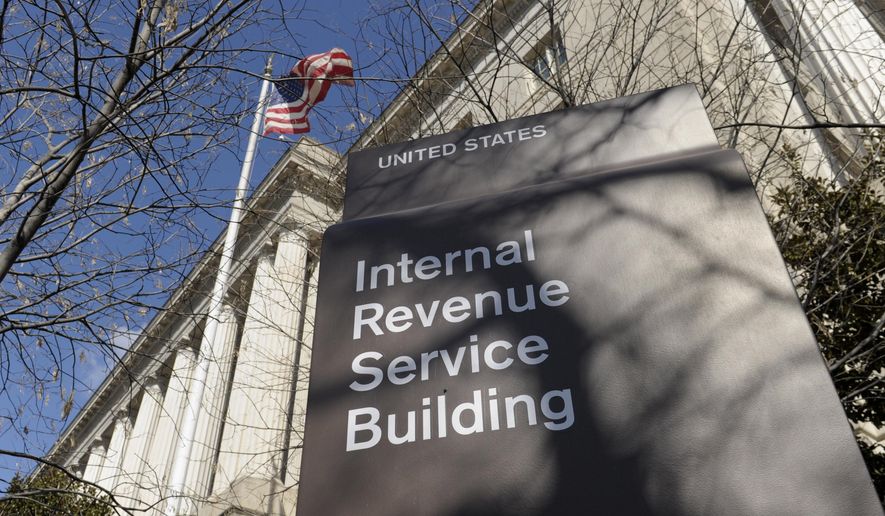The IRS can’t seem to stop hanging up on taxpayers, according to a new audit by the agency’s inspector general, which monitored hundreds of customer service calls and found that in 15% of them, the connection was broken before the conversation was completed.
Investigators said they couldn’t determine if the agency’s phone systems were dropping the calls or if the employees were hanging up.
The findings came as part of a new audit of IRS phone customer service. The Treasury Inspector General for Tax Administration said the tax agency has generally done a better job in recent years of answering calls but said that didn’t tell the whole story.
Even when it picked up the phone, things didn’t always go well.
Auditors listened in on hundreds of customer service calls last year and said IRS employees mishandled 11% of them, including discourteous service, distracting background noise or prolonged holds.
And then there were the 15% of calls where the connection was “dropped” or “disconnected.”
IRS officials told auditors their systems don’t allow them to track the reason.
But the inspector general persisted, saying the agency’s reputation depends on getting those issues right.
“We acknowledge this difficulty as we also experienced it during our review. However, a high call drop rate can negatively affect how taxpayers view the IRS,” the audit said. “A taxpayer may view the IRS as unprofessional or be frustrated when they are disconnected in the middle of a call.”
All told, auditors listened to 831 calls that came in on five customer service lines in April and May 2024.
The said things “generally” went well, but 90 calls had instances of “unprofessional” behavior.
In 51 of those cases, the IRS employees were discourteous, which the investigation said meant they rushed taxpayers to get off the phone, talked over them or used an “unprofessional tone.”
Two dozen other cases saw taxpayers left on hold for at least 15 minutes, and in one case, up to 80 minutes. One taxpayer was placed on hold 12 times in a single call.
“Taxpayers calling the IRS deserve to have their tax questions and issues addressed as quickly as possible by a knowledgeable IRS representative,” the audit said. “If a taxpayer waits on hold for a long time, they may hang up before having their issue resolved.”
In 15 of the calls, investigators said there was loud background noise coming from the IRS side of the call. That included “yelling and screaming” or machines powering on and off.
The IRS, in its official response to the audit, said it is “committed to respecting and protecting taxpayer rights, which includes the right to quality service.”
Kenneth Corbin, chief of taxpayer services, said they conduct regular reviews to spot representatives using an inappropriate tone, rushing a conversation or putting people on hold too long.
The agency did agree to conduct annual refresher training for IRS employees who provide phone customer service.
The IRS received nearly 1.4 million calls in April 2024, the busiest month for the agency, given the filing deadline for individual tax returns. It received 950,000 calls in May.
Phones have been a problem for the IRS, with the agency’s “level of service” falling to abysmal levels earlier this decade.
In 2021, the agency received 282 million phone calls and answered just 32 million, or 11%. Some of that was pandemic-related, both the volume of calls and the lower service.
But even in 2019, well before the pandemic, the agency received 99 million calls and answered just 29% of them.
This year, the agency focused on answering some of its most popular phone lines and achieved a better rate, answering 53% of calls to its Individual Income Tax Services line and 60% of calls to its Business and Specialty Tax Services line.
• Stephen Dinan can be reached at sdinan@washingtontimes.com.




Please read our comment policy before commenting.